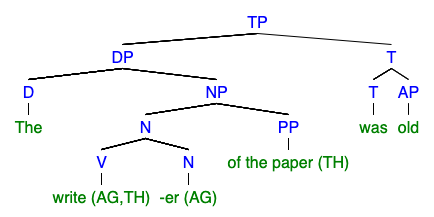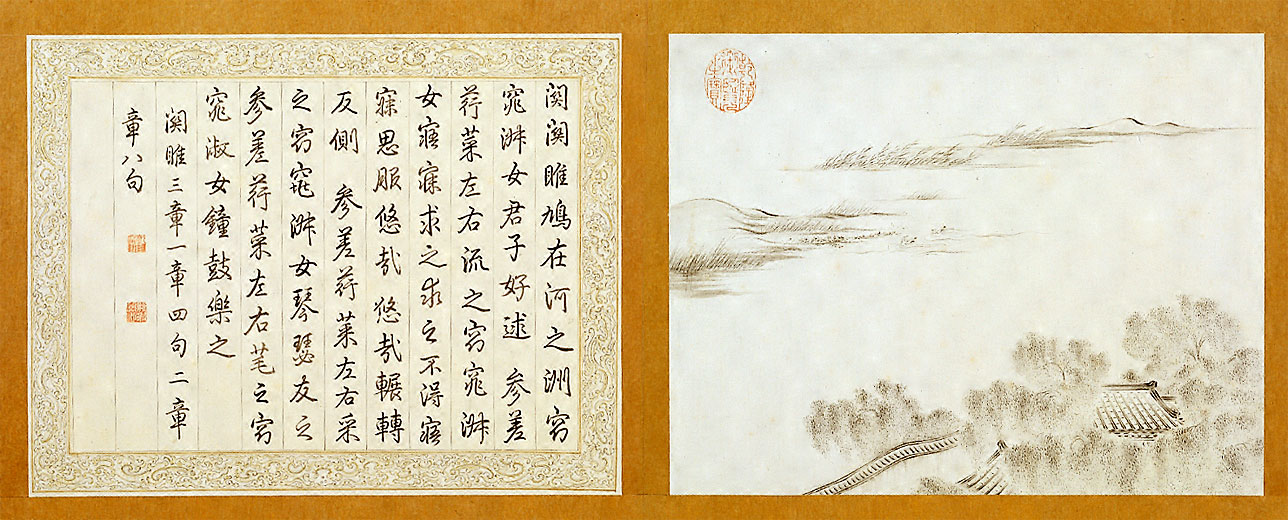|
Nominalizer
In linguistics, nominalization or nominalisation is the use of a word that is not a noun (e.g., a verb, an adjective or an adverb) as a noun, or as the head of a noun phrase. This change in functional category can occur through morphological transformation, but it does not always. Nominalization can refer, for instance, to the process of producing a noun from another part of speech by adding a derivational affix (e.g., the noun ''legalization'' from the verb ''legalize''), but it can also refer to the complex noun that is formed as a result. Nominalization is also known as "nouning". Some languages simply allow verbs to be used as nouns without inflectional difference (conversion or zero derivation), while others require some form of morphological transformation. English has cases of both. Nominalization is a natural part of language, but some instances are more noticeable than others. Writing advice sometimes focuses on avoiding overuse of nominalization. In various langua ... [...More Info...] [...Related Items...] OR: [Wikipedia] [Google] [Baidu] |
Linguistics
Linguistics is the scientific study of human language. It is called a scientific study because it entails a comprehensive, systematic, objective, and precise analysis of all aspects of language, particularly its nature and structure. Linguistics is concerned with both the cognitive and social aspects of language. It is considered a scientific field as well as an academic discipline; it has been classified as a social science, natural science, cognitive science,Thagard, PaulCognitive Science, The Stanford Encyclopedia of Philosophy (Fall 2008 Edition), Edward N. Zalta (ed.). or part of the humanities. Traditional areas of linguistic analysis correspond to phenomena found in human linguistic systems, such as syntax (rules governing the structure of sentences); semantics (meaning); morphology (structure of words); phonetics (speech sounds and equivalent gestures in sign languages); phonology (the abstract sound system of a particular language); and pragmatics (how social con ... [...More Info...] [...Related Items...] OR: [Wikipedia] [Google] [Baidu] |
Conversion (word Formation)
In linguistics, conversion, also called zero derivation or null derivation, is a kind of word formation involving the creation of a word (of a new word class) from an existing word (of a different word class) without any change in form, which is to say, derivation using only zero. For example, the noun ''green'' in golf (referring to a putting-green) is derived ultimately from the adjective ''green''. Conversions from adjectives to nouns and vice versa are both very common and unnotable in English; much more remarked upon is the creation of a verb by converting a noun or other word (e.g., the adjective ''clean'' becomes the verb ''to clean''). Verbification Verbification, or verbing, is the creation of a verb from a noun, adjective or other word. In English In English, verbification typically involves simple conversion of a non-verb to a verb. The verbs ''to verbify'' and ''to verb'', the first by derivation with an affix and the second by zero derivation, are themselves prod ... [...More Info...] [...Related Items...] OR: [Wikipedia] [Google] [Baidu] |
Classical Chinese
Classical Chinese, also known as Literary Chinese (古文 ''gǔwén'' "ancient text", or 文言 ''wényán'' "text speak", meaning "literary language/speech"; modern vernacular: 文言文 ''wényánwén'' "text speak text", meaning "literary language writing"), is the language of the classic literature from the end of the Spring and Autumn period through to the either the start of the Qin dynasty or the end of the Han dynasty, a written form of Old Chinese (上古漢語, ''Shànɡɡǔ Hànyǔ''). Classical Chinese is a traditional style of written Chinese that evolved from the classical language, making it different from any modern spoken form of Chinese. Literary Chinese was used for almost all formal writing in China until the early 20th century, and also, during various periods, in Japan, Ryukyu, Korea and Vietnam. Among Chinese speakers, Literary Chinese has been largely replaced by written vernacular Chinese, a style of writing that is similar to modern spoken Mandarin ... [...More Info...] [...Related Items...] OR: [Wikipedia] [Google] [Baidu] |
Particle (grammar)
In grammar, the term ''particle'' (abbreviated ) has a traditional meaning, as a part of speech that cannot be inflected, and a modern meaning, as a function word associated with another word or phrase, generally in order to impart meaning. Although a particle may have an intrinsic meaning, and indeed may fit into other grammatical categories, the fundamental idea of the particle is to add context to the sentence, expressing a mood or indicating a specific action. In English, for instance, the phrase "oh well" has no purpose in speech other than to convey a mood. The word 'up' would be a particle in the phrase to 'look up' (as in the phrase ''"''look up this topic''"''), implying that one researches something, rather than literally gazing skywards. Many languages use particles, in varying amounts and for varying reasons. In Hindi, for instance, they may be used as honorifics, or to indicate emphasis or negation. In some languages they are more clearly defined, such as Chinese, whic ... [...More Info...] [...Related Items...] OR: [Wikipedia] [Google] [Baidu] |
Varieties Of Chinese
Chinese, also known as Sinitic, is a branch of the Sino-Tibetan language family consisting of hundreds of local varieties, many of which are not mutually intelligible. Variation is particularly strong in the more mountainous southeast of mainland China. The varieties are typically classified into several groups: Mandarin, Wu, Min, Xiang, Gan, Hakka and Yue, though some varieties remain unclassified. These groups are neither clades nor individual languages defined by mutual intelligibility, but reflect common phonological developments from Middle Chinese. Chinese varieties differ most in their phonology, and to a lesser extent in vocabulary and syntax. Southern varieties tend to have fewer initial consonants than northern and central varieties, but more often preserve the Middle Chinese final consonants. All have phonemic tones, with northern varieties tending to have fewer distinctions than southern ones. Many have tone sandhi, with the most complex patterns in the coastal ... [...More Info...] [...Related Items...] OR: [Wikipedia] [Google] [Baidu] |
Lexical Category
In grammar, a part of speech or part-of-speech (abbreviated as POS or PoS, also known as word class or grammatical category) is a category of words (or, more generally, of lexical items) that have similar grammatical properties. Words that are assigned to the same part of speech generally display similar syntactic behavior (they play similar roles within the grammatical structure of sentences), sometimes similar morphological behavior in that they undergo inflection for similar properties and even similar semantic behavior. Commonly listed English parts of speech are noun, verb, adjective, adverb, pronoun, preposition, conjunction, interjection, numeral, article, and determiner. Other terms than ''part of speech''—particularly in modern linguistic classifications, which often make more precise distinctions than the traditional scheme does—include word class, lexical class, and lexical category. Some authors restrict the term ''lexical category'' to refer only to a partic ... [...More Info...] [...Related Items...] OR: [Wikipedia] [Google] [Baidu] |


